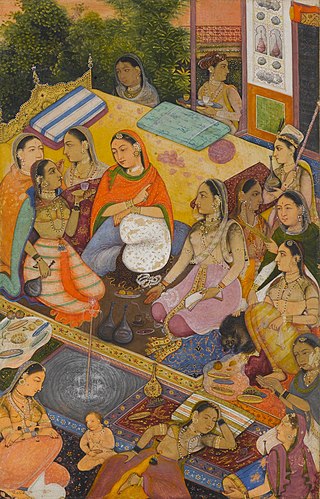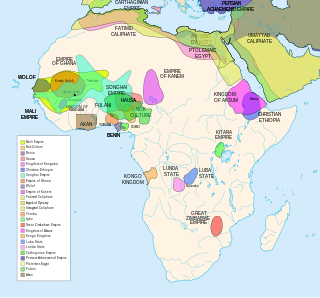Historiography is the study of the methods used by historians in developing history as an academic discipline, and by extension, the term historiography is any body of historical work on a particular subject. The historiography of a specific topic covers how historians have studied that topic by using particular sources, techniques of research, and theoretical approaches to the interpretation of documentary sources. Scholars discuss historiography by topic — the historiography of the United Kingdom, of WWII, of the pre-Columbian Americas, of early Islam, and of China — and different approaches to the work and the genres of history, such as political history and social history. Beginning in the nineteenth century, the development of academic history produced a great corpus of historiographic literature. The extent to which historians are influenced by their own groups and loyalties — such as to their nation state — remains a debated question.

Henri Pirenne was a Belgian historian. A medievalist of Walloon descent, he wrote a multivolume history of Belgium in French and became a prominent public intellectual. Pirenne made a lasting contribution to the study of cities that was a controversial interpretation of the end of Roman civilization and the rebirth of medieval urban culture. He also became prominent in the nonviolent resistance to the Germans who occupied Belgium in World War I.
Social history, often called "history from below", is a field of history that looks at the lived experience of the past. Historians who write social history are called social historians. Social history came to prominence in the 1960s, with some arguing that its origins lie over a century earlier.
The American Council of Learned Societies (ACLS) is a private, nonprofit federation of 75 scholarly organizations in the humanities and related social sciences founded in 1919. It is best known for its fellowship competitions which provide a range of opportunities for scholars in the humanities and related social sciences at all career stages, from graduate students to distinguished professors to independent scholars, working with a number of disciplines and methodologies in the U.S. and abroad.
A history journal is an academic serial publication designed to present new scholarship on a historical subject, usually a subfield of history, with articles generally being subjected to peer review.
Urban history is a field of history that examines the historical nature of cities and towns, and the process of urbanization. The approach is often multidisciplinary, crossing boundaries into fields like social history, architectural history, urban sociology, urban geography, business history, and archaeology. Urbanization and industrialization were popular themes for 20th-century historians, often tied to an implicit model of modernization, or the transformation of rural traditional societies.

Ram Sharan Sharma was an Indian historian and Indologist who specialised in the history of Ancient and early Medieval India. He taught at Patna University and Delhi University (1973–85) and was visiting faculty at University of Toronto (1965–1966). He also was a senior fellow at the School of Oriental and African Studies, University of London. He was a University Grants Commission National Fellow (1958–81) and the president of Indian History Congress in 1975. It was during his tenure as the dean of Delhi University's History Department that major expansion of the department took place in the 1970s. The creation of most of the positions in the department were the results of his efforts. He was the founding Chairman of the Indian Council of Historical Research (ICHR) and a historian of international repute.

History is the systematic study and documentation of the human past.

Guy Beiner is an Israeli-born historian of the late-modern period with particular expertise in Irish history.

Women's history is the study of the role that women have played in history and the methods required to do so. It includes the study of the history of the growth of woman's rights throughout recorded history, personal achievements over a period of time, the examination of individual and groups of women of historical significance, and the effect that historical events have had on women. Inherent in the study of women's history is the belief that more traditional recordings of history have minimised or ignored the contributions of women to different fields and the effect that historical events had on women as a whole; in this respect, women's history is often a form of historical revisionism, seeking to challenge or expand the traditional historical consensus.
Library history is a subdiscipline within library science and library and information science focusing on the history of libraries and their role in societies and cultures. Some see the field as a subset of information history. Library history is an academic discipline and should not be confused with its object of study : the discipline is much younger than the libraries it studies. Library history begins in ancient societies through contemporary issues facing libraries today. Topics include recording mediums, cataloguing systems, scholars, scribes, library supporters and librarians.

The historiography of Canada deals with the manner in which historians have depicted, analyzed, and debated the history of Canada. It also covers the popular memory of critical historical events, ideas and leaders, as well as the depiction of those events in museums, monuments, reenactments, pageants and historic sites.
Giles Constable was an English historian of the Middle Ages. Constable was mainly interested in the religion and culture of the 11th and 12th centuries, in particular the abbey of Cluny and its abbot Peter the Venerable.

African historiography is a branch of historiography concerning the African continent, its peoples, nations and variety of written and non-written histories. It has differentiated itself from other continental areas of historiography due to its multidisciplinary nature, as Africa's unique and varied methods of recording history have resulted in a lack of an established set of historical works documenting events before European colonialism. As such, African historiography has lent itself to contemporary methods of historiographical study and the incorporation of anthropological and sociological analysis.
Antonella Romano is a French historian of science known for her research on science and the Catholic Church, and in particular on the scientific and mathematical work of the Society of Jesus (Jesuits) in the Renaissance. She is full professor at the Alexandre Koyré Centre for research in the history of science at the School for Advanced Studies in the Social Sciences (EHESS) in Paris, the former director of the center, and a vice-president of EHESS.
The Library History Round Table encourages research and publication on library history and promotes awareness and discussion of historical issues in librarianship. It "exists to facilitate communication among scholars and students of library history, to support research in library history, and to be active in issues, such as preservation, that concern library historians." It is part of the American Library Association.







